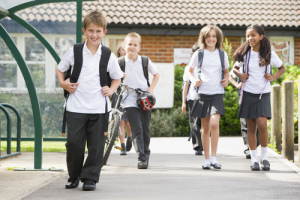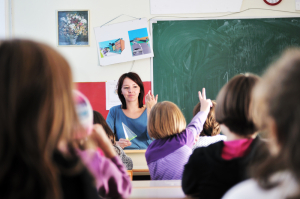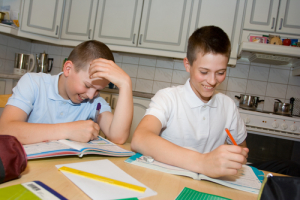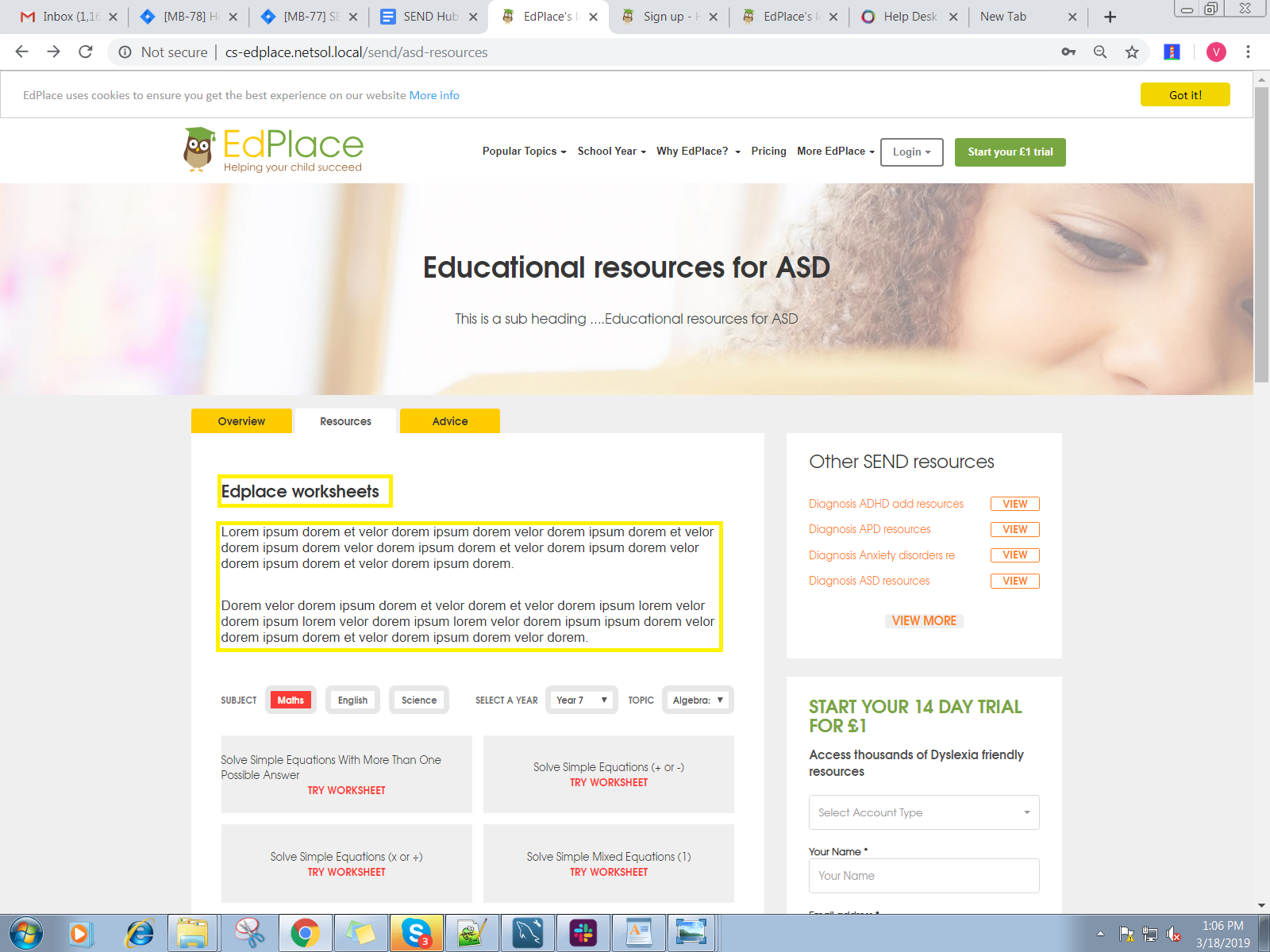 It’s the sight that every school child (and teacher!) dreads. No sooner have you come skipping out of school on the last day of term for the long summer break, than the ‘Back to School’ notices start appearing in stationers and school outfitters. An unwelcome reminder that, before long, September will be upon us and a new school year will begin.
It’s the sight that every school child (and teacher!) dreads. No sooner have you come skipping out of school on the last day of term for the long summer break, than the ‘Back to School’ notices start appearing in stationers and school outfitters. An unwelcome reminder that, before long, September will be upon us and a new school year will begin.
It is important to make the most of the break, but also important that your child is fully prepared for what may lie ahead during the coming year.
Our last post emphasised how crucial it is to ensure that your child remains engaged over the holidays, to avoid any regression that may occur on their return to school. This could be, for example, keeping their brains active with days out or making use of the Summer Starter Packs available from EdPlace.
But, as the summer nights begin to draw in, it is a good idea to be familiar with what stage your child is at with their education so that you can help them, more specifically, with what they will face in the next academic year.
The National Curriculum is arranged into the ‘Early Years Foundation Stage’ (EYFS) and four ‘Key Stages’. At the end of each Key Stage, the children are assessed to determine how they are progressing through the core subjects. This may be done by teacher assessments, or, as is the case at the end of Key Stage 2, by national tests. There will also be observational assessments done at the end of EYFS to help support the child’s learning and development as he/she enters Key Stage 1. As well as this, assessments will take place, to some degree, during each school year to ensure that children aren't slipping behind and that, if necessary, extra encouragement can be given to help them reach the next level.
The five stages of primary and secondary education are set out as below:
- EYFS - Aged 3 to end of Reception
- Key Stage 1 - Year 1 to end of Year 2
- Key Stage 2 - Year 3 to end of Year 6
- Key Stage 3 - Year 7 to end of Year 9
- Key Stage 4 - Year 10 to end of Year 11
Each year is important to your child as every year will involve assessments of some kind to ensure that they are progressing at a rate that is suitable to their level of learning.
Key Stage 1
During Year 1 your child will be given a ‘Phonics screening check’. This will ensure that your child has reached a certain standard in how to decode words using their knowledge of letter sounds and patterns.
If they haven’t yet reached that standard they will, hopefully, receive extra help and be set the screening check again the following year.
You can help with this by pointing out how familiar words are broken down and the sounds that the different letters, or letter strings, make. A child’s name is a good place to start and they can also help to write shopping lists by listening to the sounds that the words make and writing down the appropriate letter.
Ours is a peculiar language though, and it isn’t until you start breaking down individual words that you realise just how many of them don’t follow ‘the basic rules’, such as ‘you’ and ‘busy’. It may be best to avoid these words for the time being and judge when the time is right to start introducing high frequency words that are common ‘rule breakers' that eventually, all being well, your child will learn by sight without the need to decode.
The sooner you can get your child interested in reading the better. So, if they don’t show much of an interest in books at this stage, encourage them to choose a magazine while out shopping or a comic book that might be more attractive to them.
At the end of Year 2 the children will be assessed in English, Maths and Science. These will not be formal national tests, but something that you may like to prepare your child for.
Refer to our earlier blog ‘Revision Made Easy’ for tips on how best to do this.
Key Stage 2
Once your child moves into Year 3 they will enter Key Stage 2 and will sit national
tests during Spring in Year 6, marking the end of this Key Stage. Once again, our revision blog should help you to ensure your child is ready for these tests without causing any undue stress.
During Key Stage 2 schoolwork will begin to move a little away from ‘learning through play’ as it may have been during the earlier years. There will be more written work and the children will be being prepared for the tests in Year 6. Speak to your child’s teacher to help identify if there are any weak areas that the Year 2 assessments may have revealed that you may be able to help work on.
It is also a good idea to try and find out what subjects they will be studying during the following year. History lessons could include learning about the Greeks or World War Two, for example, and many schools encourage children to dress up or may have exciting trips coming up that children can be looking forward to when they go back in September.
If you know what subjects are coming up you may be able to begin to whet their appetites with some research or visits of your own during the holidays. This can be of particular encouragement to lower ability children who will have their confidence boosted by beginning the year with a little knowledge, not to mention interest in what they are about to study.
Key Stage 3
The move to Secondary school sees the beginning of Key Stage 3 and will also include some new subjects.
Modern Foreign Languages (MFL) will be compulsory for the first time. The schools will probably have purpose built labs and workshops for subjects such as Design and Technology and the Sciences. These lessons will become a lot more practical and will greatly appeal to children as they get older, particularly those who may be a little less academic.
During Year 9 the children will choose the subjects that they wish to take for GCSE in Year 11. (Some subjects may be taken earlier in Year 10). It is important that the children think carefully about which subjects will stand them in good stead for any ‘A’ levels they may wish to take, but they also need to consider where their strengths lie and what they will enjoy studying.
Key Stage 4
Year 10 will mark the start of beginning the coursework for GCSEs. This coursework makes up a significant part of the overall grade and so it is important for students, particularly those who may not flourish under exam conditions, to bear this in mind and aim to reach their full potential in all areas throughout the next two years.
 The majority of exams for GCSEs will take place during Year 11. As with Year 10, any coursework done this year will play a major part in the overall grade, so try to ensure any problems are ironed out straight away and during the build up to exams you may like to encourage your child to draw up a revision timetable and do what you can to support them during this time. Make good use of any revision guides you can find online or from bookshops.
The majority of exams for GCSEs will take place during Year 11. As with Year 10, any coursework done this year will play a major part in the overall grade, so try to ensure any problems are ironed out straight away and during the build up to exams you may like to encourage your child to draw up a revision timetable and do what you can to support them during this time. Make good use of any revision guides you can find online or from bookshops.
Every year is significant in your child’s education. There will be things that they will look forward to and also some things that they may feel apprehensive about. Hopefully this basic overview will give you some idea of what they are likely to encounter each year and will help you to support them as they move through their schools.
By Claire Fisher










